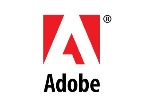 The rapid release path for Firefox version updates did not run all that smoothly for Version 7. After updating to Version 7, there were instances in which users discovered one or more of their add-ons were hidden. As a result, the release of the new updates to Firefox Version 7 was paused in order to minimize the impact.
The rapid release path for Firefox version updates did not run all that smoothly for Version 7. After updating to Version 7, there were instances in which users discovered one or more of their add-ons were hidden. As a result, the release of the new updates to Firefox Version 7 was paused in order to minimize the impact.An update fixing the issue has been released. To get the update now, select Help, About Firefox, Check for Updates.
Fixed in Firefox 7
MFSA 2011-45 Inferring Keystrokes from motion data
MFSA 2011-44 Use after free reading OGG headers
MFSA 2011-43 loadSubScript unwraps XPCNativeWrapper scope parameter
MFSA 2011-42 Potentially exploitable crash in the YARR regular expression library
MFSA 2011-41 Potentially exploitable WebGL crashes
MFSA 2011-40 Code installation through holding down Enter
MFSA 2011-39 Defense against multiple Location headers due to CRLF Injection
MFSA 2011-36 Miscellaneous memory safety hazards (rv:7.0 / rv:1.9.2.23)
References
- Issue discovered with Firefox add-on upgrades | Mozilla Add-ons Blog
- Security Advisories for Firefox














